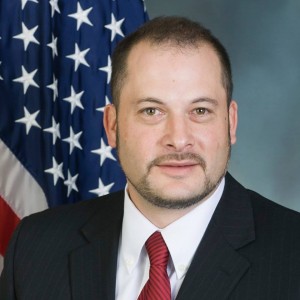Submitted Article
Rep. Jonathan Fritz (Susquehanna/Wayne) provided the following statement regarding the House Republican “Good Jobs for PA” initiative.
“To ensure students are prepared to succeed in the jobs of today and tomorrow, we as a Legislature developed a new workforce development initiative better known as #GoodJobs4PA. The goal of this initiative is to promote the need for graduating students to be taught and instilled with the necessary skills employers desire as well as focusing on moving Pennsylvanian’s toward successful, family-sustaining careers.
Below are a few of the bills that the House has passed so far that would help improve workforce development in the Commonwealth:
•HB 324: Provides a new revitalization tool for addressing unemployment and small business opportunities by allowing municipalities to develop a microenterprise loan program to help start small businesses in blighted downtown communities.
• HB 265: Expands an established database that allows students and potential students to plan where courses, programs, certificates, and diplomas transfer among public schools and institutions of higher education.
• HB 334: Requires the Pennsylvania Department of Education to create guidelines for when a student who successfully completes a STEM course, program or activity for credit can also apply the credit toward a course through a vocational-technical school, technical institution or vocational school.
• HB 394: Requires PDE and the Department of Labor and Industry to conduct a complete inventory of existing workforce development programs at both the secondary and postsecondary levels.
• HB 522: Establishes the Career and Technical Education Investment Incentive Program, which would provide tax credits, applicable to any state tax, to businesses that contribute to career and technical partnership organizations.
• HB 64: Amends the Bureau of Professional and Occupational Affairs Act, allowing professionals to carry over accrued continuing education credits for biennial terms.
• HB 297: Requires PDE to develop materials outlining workforce needs, including training opportunities and future earning potential to ensure students are aware of opportunities from a wide variety of organizations and career paths. Also allows for community colleges and other technical and/or trade schools to attend career/college fairs.
• HB 393: Requires PDE and the departments of Labor and Industry and Agriculture to develop and maintain a comprehensive online career resource center for students, parents, educators and school officials to provide information on the value and impact of career and technical education (CTE), career pathways, data and statistics on employment opportunities and compensation, postsecondary options, and statewide and regional articulation agreements.
• HB 395: Allows CTE programs or a cluster of programs to establish occupational advisory committees at the Intermediate Unit (IU) level to serve multiple school districts or Career and Technical Centers (CTCs). The committees would meet twice a year to ensure programs are working effectively and are meeting industry standards and needs so students are best prepared to enter the workforce.
• HB 396: Requires each local Workforce Development Board (WDB) to include in its membership at least one administrator of a Career and Technical Center whose attendance area is covered by the service area of the WDB.
• HB 425: Creates CareerBound, a program to strengthen the connection between Pennsylvania’s students and the next generation of high-priority careers. CareerBound would provide students with career exploration opportunities while also allowing business partners the opportunity to develop collaborative relationships with schools to best prepare students for what to expect in the workforce.
“As the first phase of our workforce development initiative concludes, I want to express my gratitude and support of our schools and vocational schools across the Commonwealth for the education and skills they provide our children and want them to know that we look forward to working to help further strengthen their programs and education so these students graduate with all the vital skills and training employers seek.”

